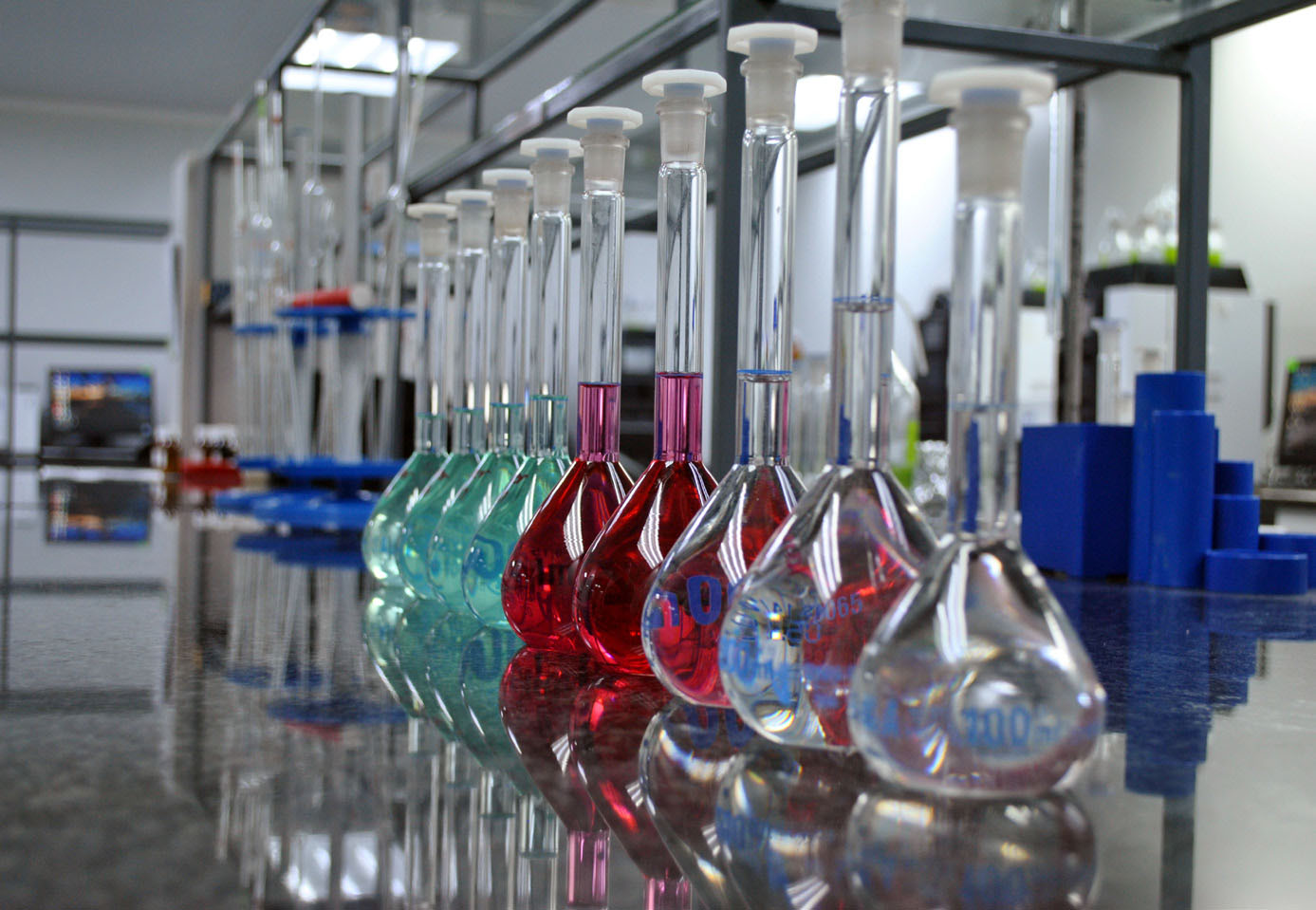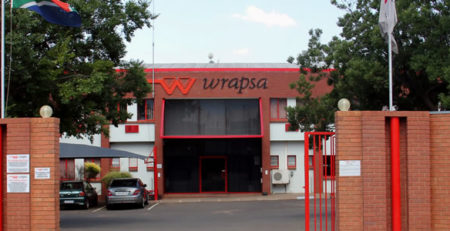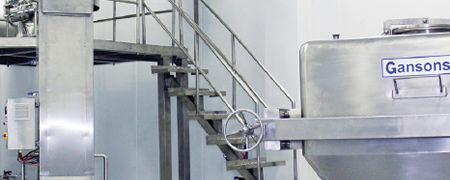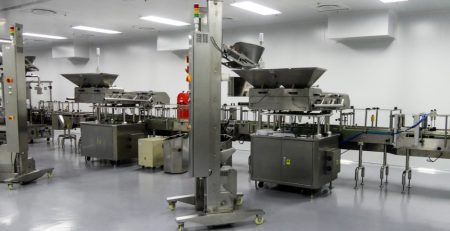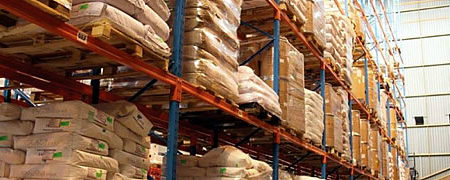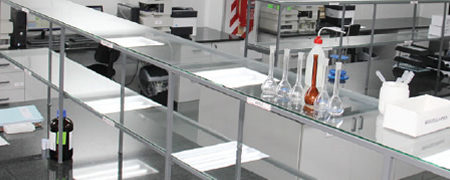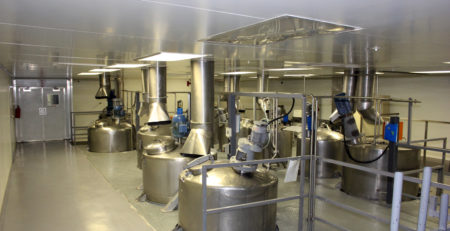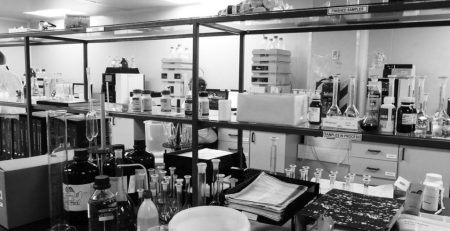Wrapsa celebrates four decades of quality manufacturing

Author: Abby Vorster
Published in Pharmaceutical & Cosmetic Review – November 2023
The bona-fide pharmaceutical contract manufacturer celebrated its 40th birthday in 2023. Since the business was established in 1983, it has expanded across several production areas and into various disciplines.
For four decades, Wrapsa has fulfilled a definitive need as a reliable local contract manufacturer of pharmaceutical products, toiletries, pharmaceutical aerosols, veterinary products, food supplements and complementary medicines.
Some of its customers have been with the business since the beginning which is a testament to the peace of mind Wrapsa provides as a bona-fide pharmaceutical contract manufacturer.
“A large part of our customer retention strategy is based on trust, customer confidentiality and service excellence. Customers trust Wrapsa with their formulations, brand strategy and product IP, which are further safeguarded by the fact that we don’t produce any of our own branded products,” says Leanco van der Westhuizen, financial manager at Wrapsa.
Developments over the last decade
Wrapsa has grown steadily from modest beginnings to becoming southern Africa’s largest independently-owned and fully accredited bona-fide contract manufacturer. The past 10 years have seen some of the most significant developments within the business, which include:
- An R80 million upgrade to its manufacturing and packing facility completed in early 2014 in line with the PIC/S guidelines. When the-then Medicines Control Council was accepted as a member of PIC/S, all pharmaceutical manufacturers like Wrapsa were required to strengthen their GMP inspectorate and compliance with regulatory standards.
- Installing and commissioning a high-tech, dedicated ARVs plant in 2017. This manufacturing plant is one of the best in the country. Wrapsa produces a bi-layer fixed-dose combination ARV drug in a coated tablet format using the latest molecules on the market. The bi-layer tablet helps with patient compliance and is crucial to improving the quality of life of people living with HIV.
- Upgrades to the on-site laboratory in 2019, including new benchtops, cabinets and HPLCs for the ARVs project and a new infrared spectrometer for assays of complementary and alternative medicines (CAMs). A laboratory information management system, compliant with the requirements of the South African Health Products Regulatory Authority (SAHPRA), was also implemented at the time, and two walk-in stability ovens were established for extensive stability testing.
- The qualification of a new reverse osmosis plant in 2022. This was installed to deliver World Health Organization-standard quality water to Wrapsa’s foodstuffs manufacturing facility.
- A dedicated plant for manufacturing and packing medicated gummies, lozenges and effervescents in 2023. This area has two separate fully enclosed production lines – one for gummies and the other for effervescents. The area was established to assist customers in their pursuit of new and improved oral therapies and innovative pharmaceutical dosage formats.
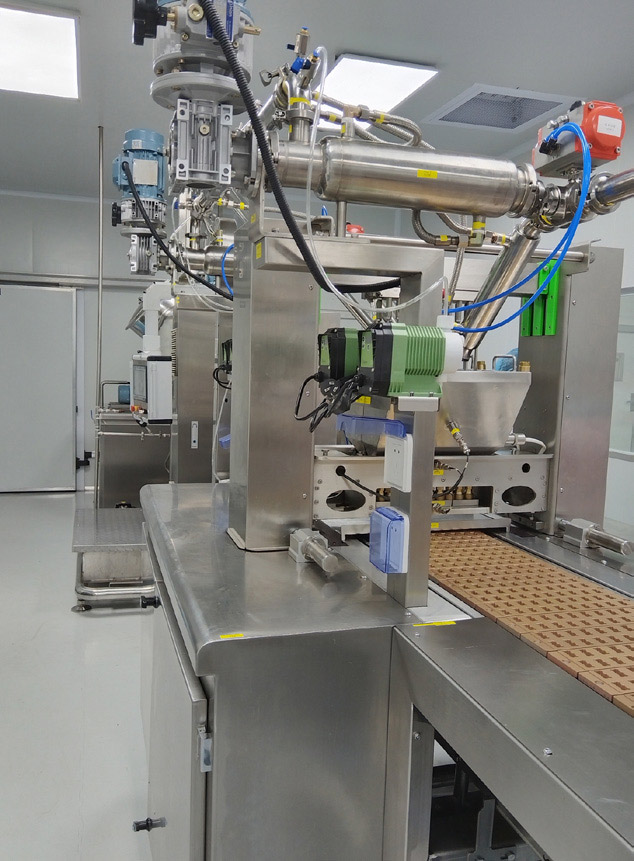
Wrapsa’s new production line for medicated gummies and lozenges 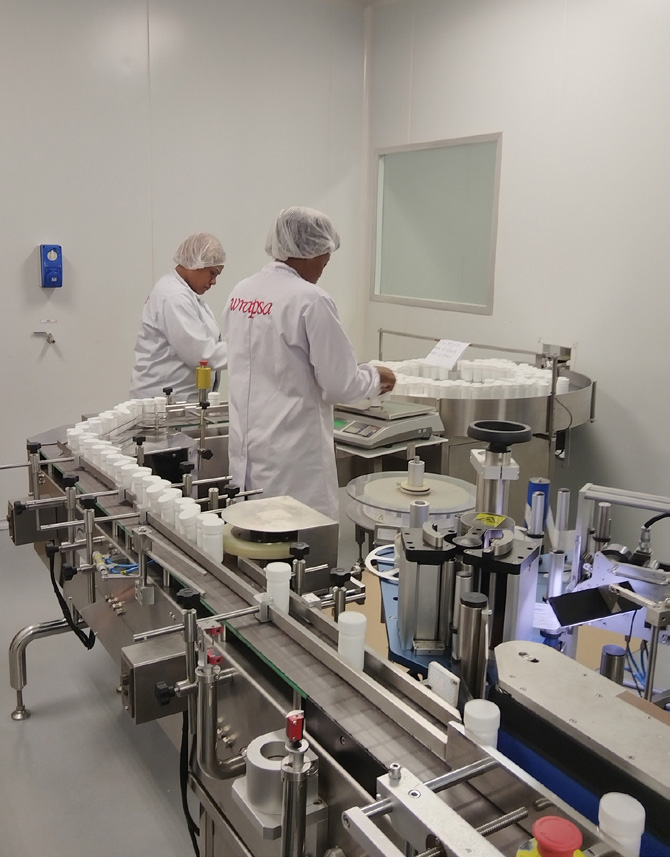
A packing line equipped with check weighers and inspection technology 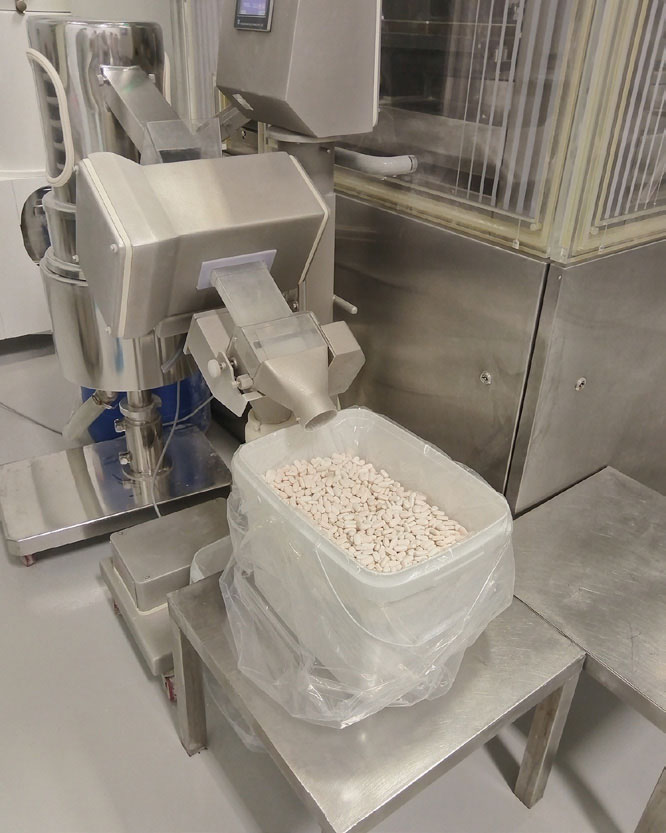
The bi-layer fixed-dose combination ARV coated tablets manufactured by Wrapsa for government tender business
High-level innovation and expansion
The demand for nutraceutical medicated gummies is high worldwide. Medicated gummies offer highly accurate dosing and are an easy format for combining different types of active ingredients. They also have an excellent shelf-life stability. Gummies can be produced in appealing flavours; they are potentially low in sugar or even sugar-free and any unpleasant tastes of APIs can be masked relatively easily.
In South Africa, effervescent tablets are a very popular dosage format for health supplements. They give formulators an opportunity to improve the taste of a multivitamin for example, are proven to be gentler on a patient’s stomach, and have more consumer appeal than traditional dosage forms.
A complex production process is required to manufacture effervescent tablets and the production area must be temperature and humidity controlled. “Wrapsa has carefully addressed these requirements in the design of the new plant to ensure the safety and efficacy of the products we produce,” says Jannie Nel, Wrapsa’s responsible pharmacist.
Nel has been with the company for 33 years and was instrumental in implementing the processes required for Wrapsa to achieve its ISO 9002 certification in 1998. Later in 2008, he spearheaded the project for the manufacturer to attain recertification in line with (the-then) newer ISO 9001:2008.
Certified and Regulatory Compliant
Quality control is essential in the pharmaceutical industry to ensure patient safety and compliance with regulations, and to protect the reputation of a brand or, in Wrapsa’s case –the reputation of its customers’ brands.
After testing raw materials, in-process products and finished products, only finished goods that are of the highest quality are released for delivery to customers. “Wrapsa’s capabilities have evolved over the past 40 years to become a one-stop shop. We assist our customers with research and development, will accept raw materials and packaging components on firm or consignment basis, help with the registration of medicines and offer validation assistance,” Van der Westhuizen explains.
Nel adds: “Wrapsa’s laboratory tests all API and excipient raw materials received according to the latest Pharmacopeial methods, or as needed by the dossier requirements per product. Final products are tested according to validated methods supplied by the clients through the dossiers, and stability testing is done under various climatic zones.”
Pharmaceutical manufacturing plants must be licenced by the authority to produce medicines. Wrapsa holds ISO 9001:2015 and ISO 22000:2018 accreditations and is licenced by SAHPRA to manufacture medicines and medical devices. It also holds a SAHPRA certificate of Good Manufacturing Practice and is certified by the US Food & Drug Administration to manufacture and pack foodstuffs and cosmetics intended for end-use in the USA.
As a producer of essential drugs and government tender business, the company successfully completed a UNICEF inspection in May. A portion of the essential drugs produced on contract by Wrapsa form part of UNICEF’s primary healthcare programme in Africa.
In addition to this audit, the contract manufacturer is regularly inspected by its customers, who are viewed as an extension of the business. “We have always operated with a strong family ethos, and place the utmost importance on customer relationships,” says Nardus Alberts, CEO of Wrapsa. “Most of Wrapsa’s initial customers from 40 years ago are still customers today.”
Wrapsa’s laboratory is fully equipped to carry out FTIR spectrophotometric testing on medicinal products. This is an effective analytical method to perform quantitative tests quickly and reliably on pharmaceuticals and CAMs products.
This content was produced by and originally published in Pharmaceutical & Cosmetic Review.

